I answered this key question leading few worskhops in Amazon. I introduced EQ to the leadership and we co-created an effective package aiming to introduce EQ to the teams, enhance EQ practice for the day-by-day usage, link EQ to a business goal and define an action plan to achieve it.
I leveraged key Six Seconds tools: Unlocking EQ (UEQ) report and Think Feel Act Cards (TFA Cards) to introduce emotional intelligence and the model behind.
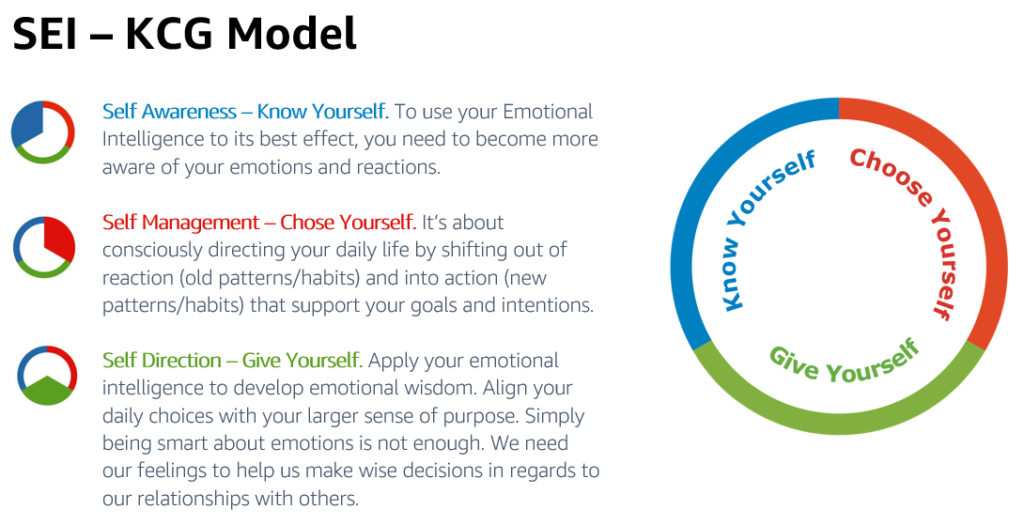
The UEQ report is a simple tool used to introduce you to emotional intelligence. It delivers clear feedback and an action plan for using EQ to achieve your goals, thanks to a personalized algorithm. It refers to Six Seconds EQ model, named KCG (i.e. Know Yourself, Chose Yourself and Give Yourself).
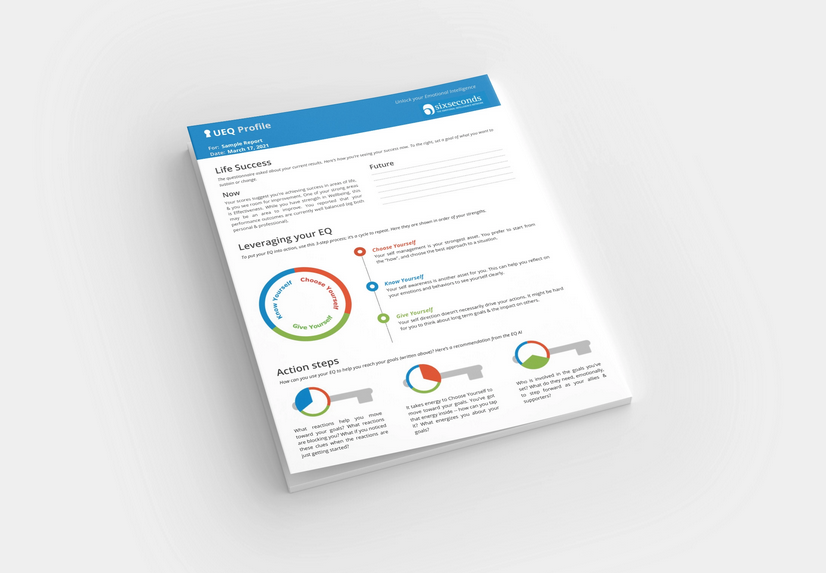
Thanks to the report, you can find out: a) “How you are doing” about your effectiveness, relationships, quality of life, and wellbeing (i.e. how performance is defined according to the Six Seconds framework) and suggestions about key benefits of using your emotional intelligence more actively; b) What you are doing right now with your EQ process; c) Three steps for you to use your emotional intelligence. You can have your UEQ for free going to the “Why EQ?” section of the website.
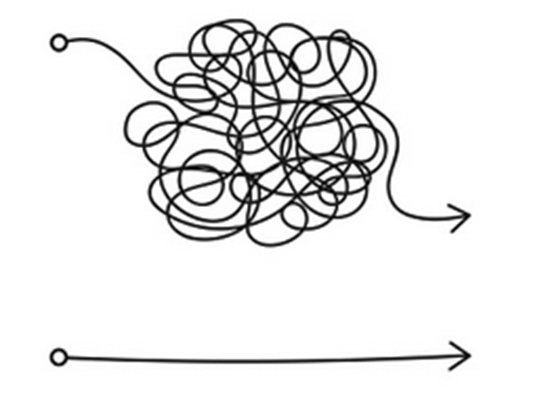
I discussed with more than 40 people (people managers & individual contributors) a simple but powerful concept: our thoughts, feelings, and actions do not usually happen in a linear way. They are interdependent and one triggers and influence the other two. We had some examples…If you think about a promotion you did not get, you feel sad or frustrated. If you think about a person who was super helpful to you, you feel grateful. Also our feelings influence our thoughts: if you are angry, you may look for enemies around you, or if you are afraid you may notice more threats. Actions affect thoughts and feelings as well. Just smiling, or breathing, calms our body and mind, changing also how we think and feel. TFA cards help distinguish between thoughts, feelings and actions, as, quite often, we confuse them. By practicing TFA cards, you also practice the Six Seconds EQ model.
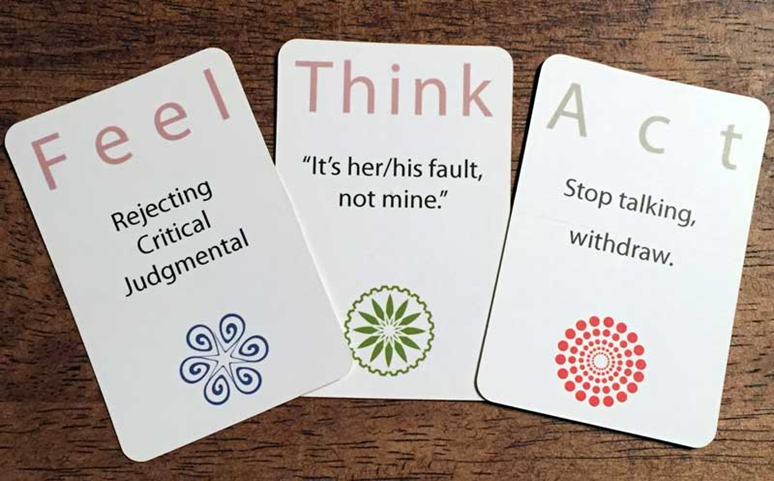
TFA Cards helped each participant to describe a situtation that ended up with a bad outcome for them. The first step was to reflect on what happened, using TFA cards to represent the three areas of this situation. What did they do (ACT), FEEL, THINK in that moment? E.g. a Director shared his story of dealing with coworkers from another team who were driving him crazy, driving opposite conclusions despite clear data. He thought they were mean and not fair (T). He felt disappointed and angry (F). And started to blame, shout and saying something harsh (A)… up to HR escalation! He trained his Self Awareness! Had him got other choices? I asked him and the team to imagine to be again in the same situation, but being able to change one of the cards. And to change it thinking to the final result they would get. Were there new cards matching the new one they choose? I asked them to take all of them in order to recreate a new THINK, FEEL, ACT schema. This was for them to train their Self Management! I also asked them why they should move in that new direction, and to ask them self about the final goal. So they trained their Self Direction! Back to the Director’s example, he said he knew he had to change this behaviour and turn around the relationship to keep performing in the company, so he changed his thoughts to own the resolution of the dispute, thinking “This is hard, but I can do it”, so that he replaced anger with confidence across his feelings. As actions, he ended up taking responsbility, explaining better the data, listening more, and ultimately turning around the relationship!
We had the chance to listen to several combinations coming from the audience. Lot of people recognized most of the situations shared by other colleagues, looking quite enlighted and surprised about the catalyst effect that each TFA area can have in the day-by-day business! We also discussed about “patterns” and how great this tool is to identify our “auto-pilot” behaviors, which lead us to uneffective outcomes!
We surveyed the participants of the workshop to have their feedback and inform the following sessions. 100% of the audience confirmed the UEQ assessment was reliable and actionable. 85% confirmed also TFA Card exercise was useful and actionable, asking to have more and more practice to get familiar with it.
And you? Do you have an example of a situation that could have ended differently (and better for you) by changing the T, F or A? Happy to have your comments and examples!
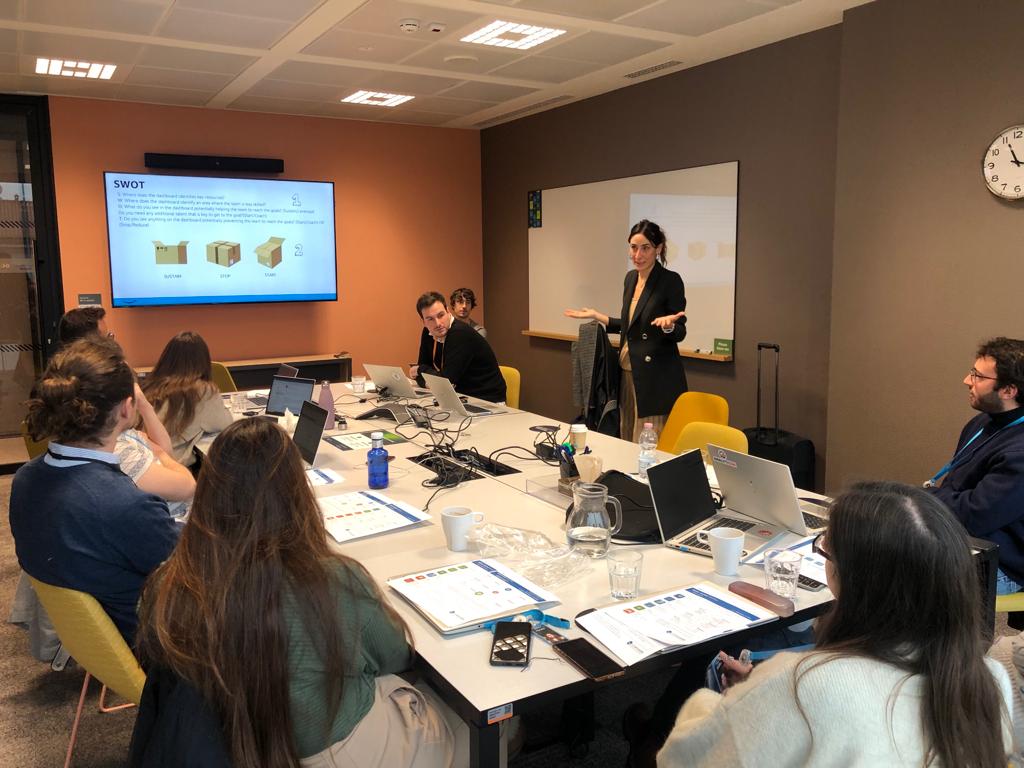
No responses yet